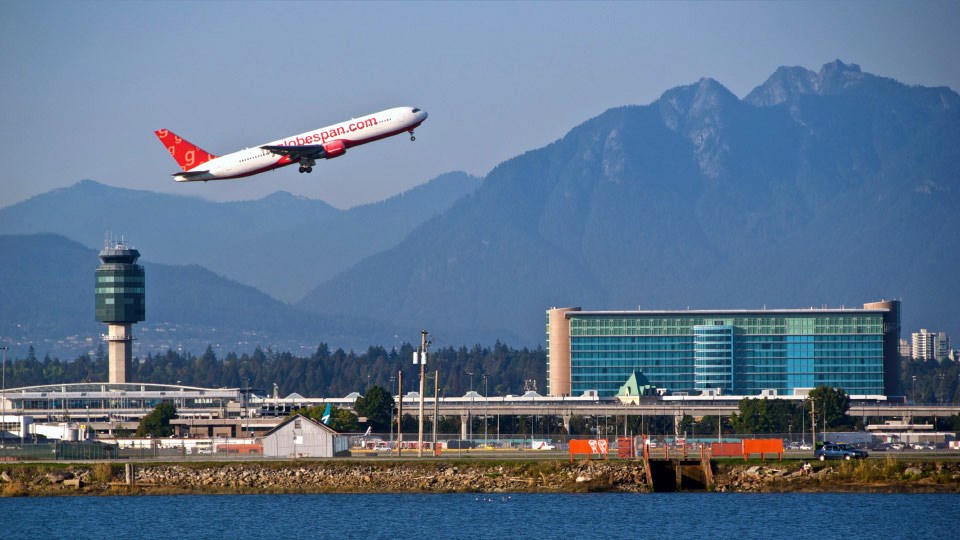When it comes to deciding who has the economic plan that best fits and deserves a check mark on the ballot, the three major parties certainly have a wide-ranging number of focuses.
n Greens see future in green tech
As might be expected, the BC Green Party sees the future economy with an emphasis on environmentally-friendly, high-tech businesses. And Richmond would be an ideal location for many of them to put down roots, given the community’s cosmopolitan nature that would allow it to draw talent from other parts of the country and beyond, said Michael Wolfe, a local teacher who is running in the new riding of Richmond Queensborough.
Among them could be the likes of car-maker and energy storage firm Tesla, Wolfe said.
“We have such diversity, we need a hub here to harness the emerging opportunities. How this comes together, in my vision, is Richmond could be a place where seed funding is available so business incubators and accelerators could locate here.”
Money to help finance that particular endeavour could come from funds diverted from pricey capital projects, such as the Massey tunnel replacement bridge, which is not supported by the Green Party.
“To pull some of that money back would allow for that rapid change to greener businesses,” Wolfe said.
He also suggested that, on a more provincial basis, BC Hydro’s mandate could be re-defined to include not just hydro-electric power generation and transmission lines, but energy projects that embrace new technologies, such as energy storage.
“What we need here is the leadership for a direction shift,” Wolfe said.
n NDP help people help econony
The NDP’s approach to fostering an improved economy is more personal, said Amandeep Singh, who is also seeking votes in the Richmond Queensborough riding.
“Our platform is all about people,” said Singh, 48. “It’s about getting better services, making life more affordable and creating more sustainable jobs that provide a living income.”
Singh, who has been running a small law firm for the past 18 years, said he understands well the responsibilities of providing employment and meeting expenses as a small business owner. He also knows the value of small businesses in the overall economic picture.
“Medium and small businesses are the drivers of the economy in many ways,” he said, adding the NDP plans on giving that segment a lift by reducing the small business tax by half a per cent.
“We will also be creating a small business task force that will help places like Richmond, which has a host of small businesses – from the restaurants and small shops to manufacturers. It will advise the government on how to strengthen that sector and add more jobs.
“Small business is the backbone of the economy in B.C. and that really speaks to Richmond.”
One of the more prominent parts in the NDP’s platform is the promise of affordable child care, something Singh said would have a positive effect on the economy if introduced.
“When you have families that don’t have to worry about the affordability of childcare, you create more productive citizens in society,” Singh said. “And what I am hearing when I talk to people is that, in the last 16 years under the BC Liberals, life has become increasingly harder.”
n Liberals looking east
Incumbent MLA Teresa Wat, who ran in the riding of Richmond Centre in 2013 and is looking to win in the re-jigged Richmond North Centre riding, took a more global stance on how her party would handle the economy.
Wat, who served the last four years as B.C.’s Minister of International Trade, and Minister Responsible for the Asia Pacific Strategy and Multiculturalism, said her party’s economic platform addresses the concerns of her constituents by focusing on assisting small businesses. Part of that is helping them make the leap into Asian markets.
“Many small businesses, and there are so many in my riding, will only expand to the U.S. because it shares the same language and culture,” she said. “Not many are comfortable exporting to Asia. But now that the U.S. is in a protectionist mode and the economy in the Asia-Pacific region is rising, there are so many opportunities there.”
Providing a pathway are B.C.’s trade and investment offices, which are located in priority markets dotted around the globe, particularly in Asia. There are four offices in China, one in Japan, South Korea and three in India.
“We find that the south east Asian market should not be overlooked because it is the fifth-largest economy in the world and they have a large middle class and young population, which creates a lot of opportunity for our small and medium-sized companies,” Wat said.



